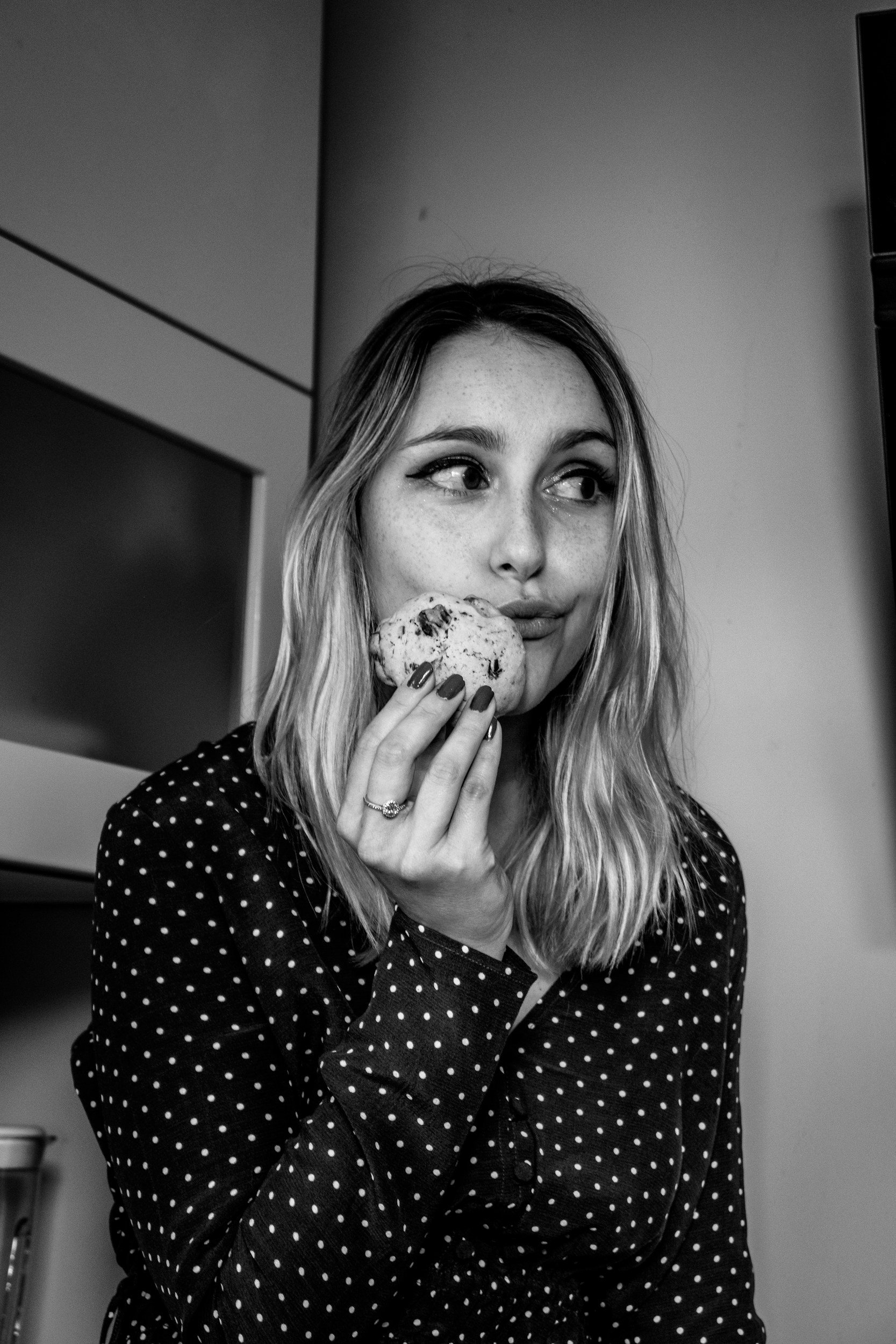How to Know If Your Relationship With Food Is Unhealthy (Even If You Don't Have an Eating Disorder)
When people think of eating disorders, they often picture extreme weight loss, hospitalization, or behaviors like severe restriction, purging, or compulsive exercise. But the reality is, many people struggle with food and body image without ever fitting the “clinical” definition of an eating disorder.
Maybe you…
✔ Constantly think about food and your body but tell yourself, “I don’t have an eating disorder.”
✔ Feel guilty after eating but assume, “That’s normal, right?”
✔ Avoid certain foods, count every calorie, or follow rigid food rules, but convince yourself, “I’m just being healthy.”
This in-between space—the gray area of disordered eating—is where so many people get stuck. It’s also where diet culture thrives, making it harder to recognize when your relationship with food needs support.
So how do you know when it’s time to reach out for help? Let’s break it down.
What Is Disordered Eating?
Disordered eating isn’t the same as an eating disorder, but it can still have a serious impact on your mental and physical health. It includes behaviors like:
❌ Frequently skipping meals or ignoring hunger cues
❌ Labeling foods as “good” or “bad” and feeling guilt around eating
❌ Relying on external food rules instead of internal cues
❌ Overthinking every food decision or feeling anxious about what’s on your plate
❌ Feeling out of control around certain foods, then over-restricting to “make up for it”
❌ Letting food and body thoughts take up so much space in your brain that it impacts your daily life
While these behaviors might not fit into an eating disorder diagnosis, they can still be harmful—and they don’t have to escalate into a full-blown disorder to be worth addressing.
Why Many People Don’t Realize They Need Support
One of the biggest reasons people stay stuck in this gray area? They don’t feel “sick enough” to ask for help.
🚩 “I still eat, so I must be fine.”
🚩 “I don’t look like I have an eating disorder.”
🚩 “Everyone struggles with food and body image, so this must be normal.”
But just because something is common doesn’t mean it’s normal or healthy. And just because your struggles don’t look extreme doesn’t mean they aren’t affecting your well-being.
How to Know If Your Relationship With Food Needs Support
You don’t need a diagnosis to deserve help. If food and body thoughts are taking up too much space in your life, it might be time to check in with yourself:
Do you feel stressed, guilty, or anxious around food?
Do you spend a lot of mental energy planning, tracking, or controlling what you eat?
Do you avoid social situations because of food?
Do you ignore hunger cues or feel disconnected from your body’s signals?
Do you struggle with body comparison, feeling like you’ll never be “good enough”?
If you answered yes to any of these, you’re not alone—and support is available.
What to Do If You’re Struggling (But Not Sure If It’s “Bad Enough”)
If you relate to any of this, here’s the good news: You don’t have to hit rock bottom to get support.
Start by reaching out to a nutritionist or therapist who specializes in disordered eating. A professional can help you explore your relationship with food in a way that feels safe and supportive.
Challenge diet culture’s messaging. Just because food rules are everywhere doesn’t mean they’re good for you. Start questioning where those thoughts are coming from.
Get curious about your patterns. If certain thoughts or behaviors feel automatic, take a step back and ask: Is this actually helping me feel good, or is it just making me feel in control?
You deserve to have a peaceful, intuitive relationship with food—without guilt, restriction, or anxiety running the show.
Want More Support? Let’s Talk.
If you’ve ever felt like your eating habits weren’t “bad enough” to get help, I’m here to tell you: You don’t need to be suffering more to deserve support.
I work with clients to rebuild their relationship with food in a way that feels sustainable, balanced, and free from guilt. If you’re curious about how that could look for you, reach out or book a consultation. You don’t have to do this alone.


